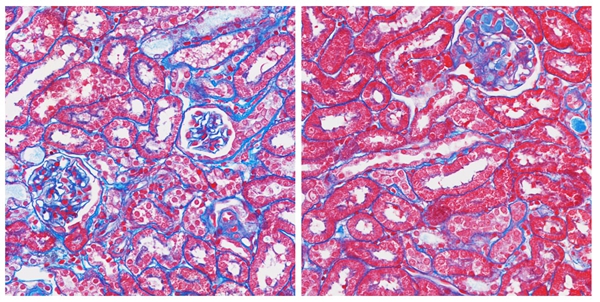A new study led by researchers from the Institute of Zoology of the Chinese Academy of Sciences, along with their collaborators, has discovered that the anti-aging effects of exercise are mediated by betaine, a metabolite produced by the kidneys. This natural compound effectively mimics the benefits of exercise by targeting a key regulator of inflammation, opening pathways for potential "exercise-in-a-pill" interventions.
This study was published in the journal Cell.
Over the course of a six-year research endeavor, the researchers meticulously mapped the complex molecular responses of humans to both intense, single workouts and sustained exercise in a cohort of 13 healthy males. By employing multi-omics analysis on blood and stool samples collected during carefully controlled rest-to-exercise transitions, they uncovered that the kidneys play a crucial role in orchestrating systemic anti-aging effects. Notably, betaine production experienced a significant increase during long-term training, which was closely correlated with reduced inflammation and diminished markers of cellular aging.
The study highlighted differences between the two types of exercise. Acute exercise triggered a state of metabolic turmoil, characterized by spikes in cortisol levels, depletion of amino acids, and the induction of oxidative stress. In contrast, sustained exercise effectively reprogrammed metabolism and immunity, leading to the expansion of "youthful" naive T-cells while simultaneously suppressing the drivers of cellular aging, such as ETS proto-oncogene 1, Transcription Factor (ETS1). Importantly, the kidneys increased betaine synthesis through the enzyme choline dehydrogenase (CHDH).
Betaine emerged as a major molecular proxy for exercise. When administered in doses that mimic exercise, it demonstrated remarkable effects, reversing aging in human kidney, vascular, and immune cells. In aged mice, it resulted in functional improvements in metabolism, cognition, and motor skills. Additionally, it directly bound to and inhibited the TANK-binding kinase 1 (TBK1) kinase, effectively blocking inflammatory cascades involving nuclear factor κB (NF-κB) and interferon regulatory factor 3 (IRF3)
"This resolves the exercise paradox," said Prof. LIU Guanghui, a co-corresponding author of this study. "Acute exercise initially triggers a survival-oriented inflammatory response and oxidative stress via the IL-6/cortisol pathway. However, long-term exercise suppresses inflammation and oxidative damage through kidney-generated betaine." These findings position betaine as a safe, low-dose therapeutic candidate, particularly for seniors with limited mobility.
This work establishes a new paradigm in the field by showing how physiological complexity can be converted into targetable pathways. As a natural TBK1 inhibitor with dual anti-inflammatory and anti-aging effects, betaine serves as a prime example of how an "exercise-in-a-pill" approach could potentially revolutionize interventions in aging.

Oral betaine effectively alleviates renal fibrosis in aged mice. Control group (left); Intervention group (right). (Image by Prof. LIU Guanghui's lab)






